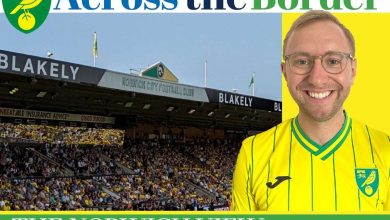You are invited – to Norwich service celebrating Christian unity

Unity in Faith: Ecumenical Thanksgiving Service Brings Christians Together
In a heartfelt celebration of Christian unity, believers from all traditions are warmly invited to gather at St. John the Baptist Catholic Cathedral in Norwich on Sunday, November 23, for an ecumenical thanksgiving service. Organized by Churches Together in Norfolk and Waveney, this annual event marks a significant milestone in the ongoing journey toward Christian unity in the region. The service, coinciding with the Feast of Christ the King, begins at 3:30 pm, with attendees asked to be seated by 3:15 pm. This inclusive gathering particularly welcomes those actively involved in ecumenical efforts at the local level, though the invitation extends to all who wish to participate in this celebration of shared faith.
The significance of this year’s service is heightened as it follows the one-year anniversary of a momentous Declaration of Commitment for Christian Unity, which was signed by local church leaders at Norwich Cathedral. This declaration represented a formal acknowledgment of their common faith, their shared calling to serve in God’s mission, and an appreciation for the richness found in their diverse traditions and spiritual gifts. The document serves as both a reminder of progress made and a foundation for future cooperation among different Christian denominations in the region. The image of these church leaders signing the declaration, captured by Keith Morris of Network Norfolk, stands as a visual testament to this commitment to unity despite denominational differences.
Dr. Ian Watson, the county ecumenical officer, describes the upcoming service as a joyful opportunity for Christians to gather as one family and celebrate the fruits of their shared spiritual journey. He emphasizes that the theme drawn from the declaration—”Together in Christ, Bound by Love, Serving as One”—highlights that ecumenism transcends mere words or theological agreements. Rather, it manifests in the faithful joining of hands in prayer, praise, and concrete action to serve communities and spread the Gospel message. This perspective frames ecumenism not as an abstract concept but as a lived reality that can transform both churches and communities when embraced wholeheartedly.
Churches Together in Norfolk and Waveney represents an impressive diversity of Christian traditions, including Anglican, Roman Catholic, Methodist, Baptist, Salvation Army, United Reformed, and Quaker faith communities. Each of these traditions brings its unique history, theological emphases, and forms of worship to the ecumenical table. Yet despite these differences—or perhaps because of them—they find strength in unity and complementary approaches to serving God’s purposes in their region. The organization stands as a practical expression of Jesus’s prayer in John 17 that his followers “may be one,” demonstrating that denominational boundaries need not prevent Christians from recognizing one another as brothers and sisters in Christ and working together for the common good.
The choice of St. John the Baptist Catholic Cathedral as the venue for this year’s service is itself a powerful symbol of growing ecumenical relationships. For centuries, divisions between Catholics and Protestants represented some of the deepest wounds in Christendom. Hosting this inclusive service in a Roman Catholic cathedral demonstrates how far inter-denominational relationships have evolved, with barriers being replaced by bridges of understanding and cooperation. The cathedral setting also provides a beautiful and sacred space that can accommodate believers from various traditions, offering an atmosphere conducive to reflection on unity in diversity and shared worship despite different liturgical backgrounds.
As Christians from across Norfolk and Waveney prepare to gather for this special service, they do so against the backdrop of a world often characterized by division and polarization. In this context, their witness to unity despite differences carries particular poignancy and prophetic significance. While not minimizing or ignoring the real theological and practical distinctions between denominations, participants in this ecumenical thanksgiving service demonstrate that the things that unite Christians—faith in Christ, commitment to Scripture, and the call to love and serve others—can outweigh the factors that separate them. In coming together to give thanks, pray, and worship as one body, they offer both to themselves and to the wider community a glimpse of what reconciliation and mutual respect can look like in practice, extending an invitation to all who wish to join in this celebration of unity in Christ.








